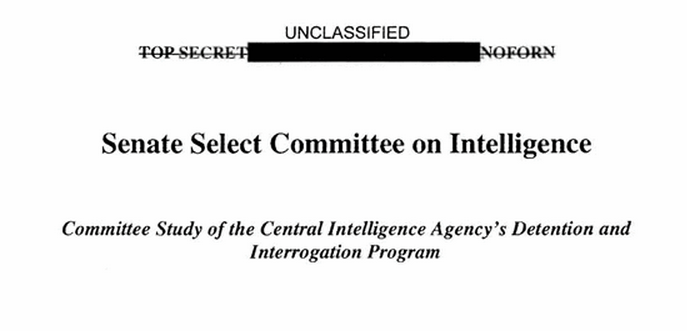I recently gave a post-play talk at a Cutting Ball Theater production of Superheroes, a play by Sean San José performed in collaboration with Campo Santo. The play is a non-narrative, nonlinear take on the 1996 revelations of Gary Webb, then a journalist with the San Jose Mercury News. In a three-part series of articles titled Dark Alliance (later to appear as a book), Webb traces the emergence of the crack cocaine epidemic in America’s inner cities. According to the story, CIA agents allowed Nicaraguans who financed the Contras to import cocaine into the United States with impunity and protected mid-level drug dealers.
That the CIA was aware of drug importing was already known at the time; a 1989 Senate committee admitted as much but stopped short of tying the CIA to the actual trafficking. Webb’s article provided the missing link. In response, the New York Times, the Washington Post, and the Los Angeles Times refuted and discredited the story, leading the San Jose Mercury News to withdraw it and sack Webb. After a stream of small jobs and financial ruin, he committed suicide.
A recent movie, Kill the Messenger, however, reaffirms Webb’s findings. And at the talk I gave, many audience members, including people of color who came of age during the heyday of the epidemic, expressed their firm belief that Webb was right, and that the CIA deliberately pushed crack cocaine into their neighborhoods with the express goal to destroy them. Michelle Alexander’s The New Jim Crow gives credence to this “strong Webb theory,” as well.
So what is true? And does it matter?
When assessing our belief in a story, it’s important to keep in mind the context in which we hear it. There is a lot of talk about white privilege these days, and it’s making a lot of people angry and defensive to the point that I’m not sure the term is useful or productive anymore. What some hear as anger and some as accusation can, however, be understood as an effort to explain to others that a single person’s lived experience cannot inform a complete view of the world, and that it is sometimes important to open one’s eyes and hearts to the lived experiences of others. This is particularly true if one’s social advantages in life are taken for granted, rendering them unaware of the lives lived by people without these advantages. The current protests erupting in many American cities by people who are sick of police abuse and of what they view as the devaluing of black lives are an expression of this frustration with not being heard.
I don’t think anyone can productively point the finger at someone at the CIA as some arch-villain who decided that dying from crack would be white America’s “final solution” to the black population. But even if one assumes a modest version of Webb’s theory, which merely ascribes ignorance and neglect, it is frightening that the CIA’s rush to protect the Contras and their allies would lead them to discount the horrific effects that drug importing would have on neighborhoods and communities. And so hearing about these experiences matters.
In many ways — which I said on Sunday night at the show — ignorance and neglect are worse than malicious design. If someone is evil and malicious, we can point a finger, accuse, and possibly (try to) prosecute. But if there is an entire system that at some point just decided that 15% of American citizens are dispensable, there’s not a lot to do. The fight is going to be much harder — anyone who regards you as an enemy at least ascribes you some importance. If you are discounted and discarded, it’s because, as many of the protesters are pointing out, the system has come to the collective conclusion that your life doesn’t matter.
Yesterday morning, the Senate Committee’s report on the CIA’s use of torture came out. The report reveals what this country does to people, many of whom are probably innocent, without informing its citizens. It is hardly a surprise to those of us who grew up on shows like Mission: Impossible, raised on the premise that we are the good guys, and as such, we are entitled to be police the world: torturing, abusing, stealing elections in at least eight countries. Mission: Impossible was a work of fiction, but maybe it was designed to make the inconceivable possible, to ameliorate our feelings and desensitize us for the moment in which we learned the truth.
And what a terrific indoctrination job! In 1974, when we found out that the White House was plotting to steal an election and spied on the opposite party, the president had to resign. Now, as we find out that a government agency is regularly listening to our telephone conversations and reading our mail, we’re not even apathetic; we’re jaded.
The question is no longer whether the crack cocaine conspiracy is believable or unbelievable. Pretty much everything is in the ballpark of the believable, and Webb’s exposé was not even that far from what the Senate itself admitted back in 1989. The question is, what are we going to do about this?
Hadar Aviram is a Professor of Law at UC Hastings College of the Law and the co-director of the Hastings Institute for Criminal Justice. She is also on Life of the Law’s Advisory Panel.









